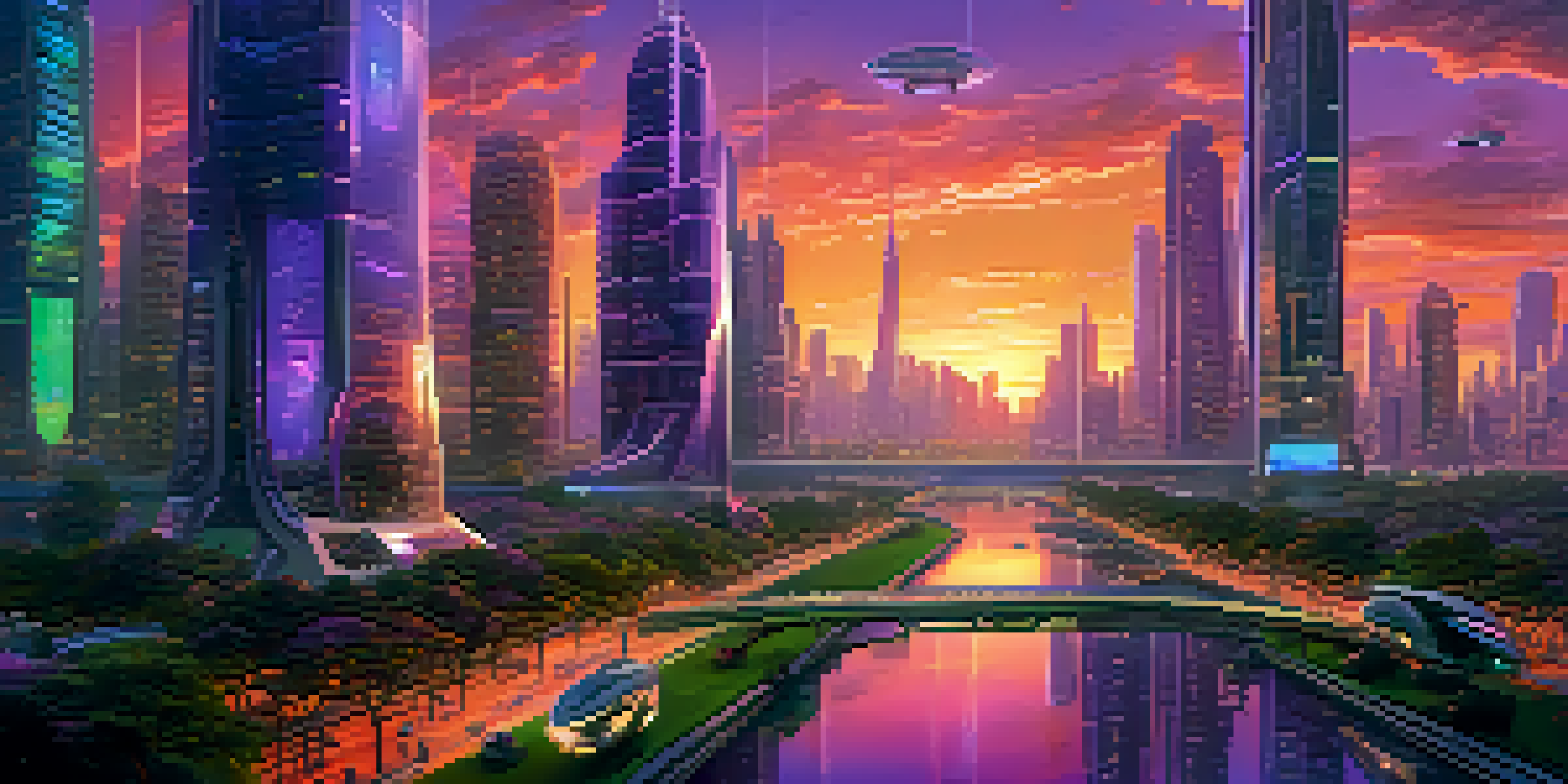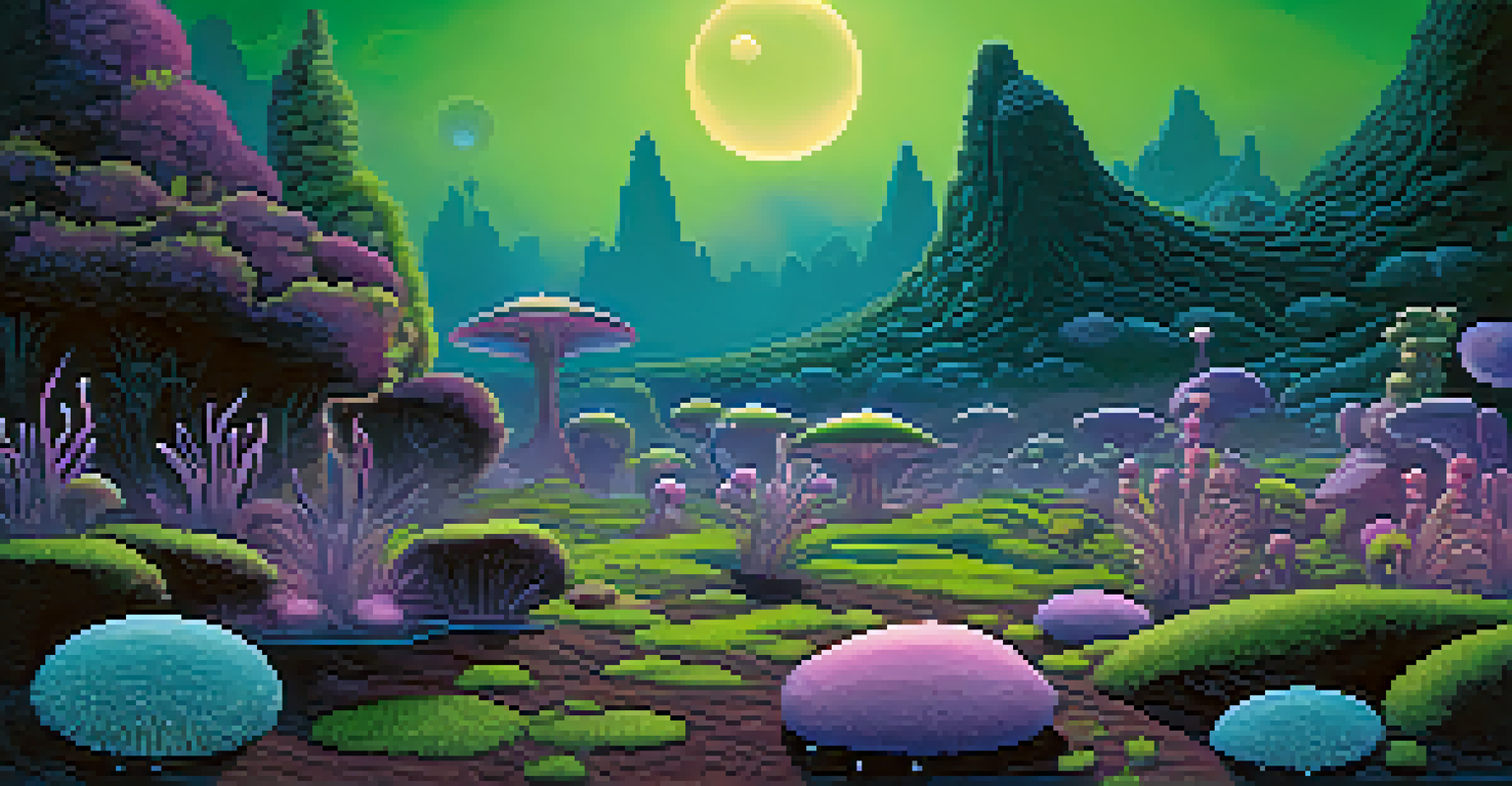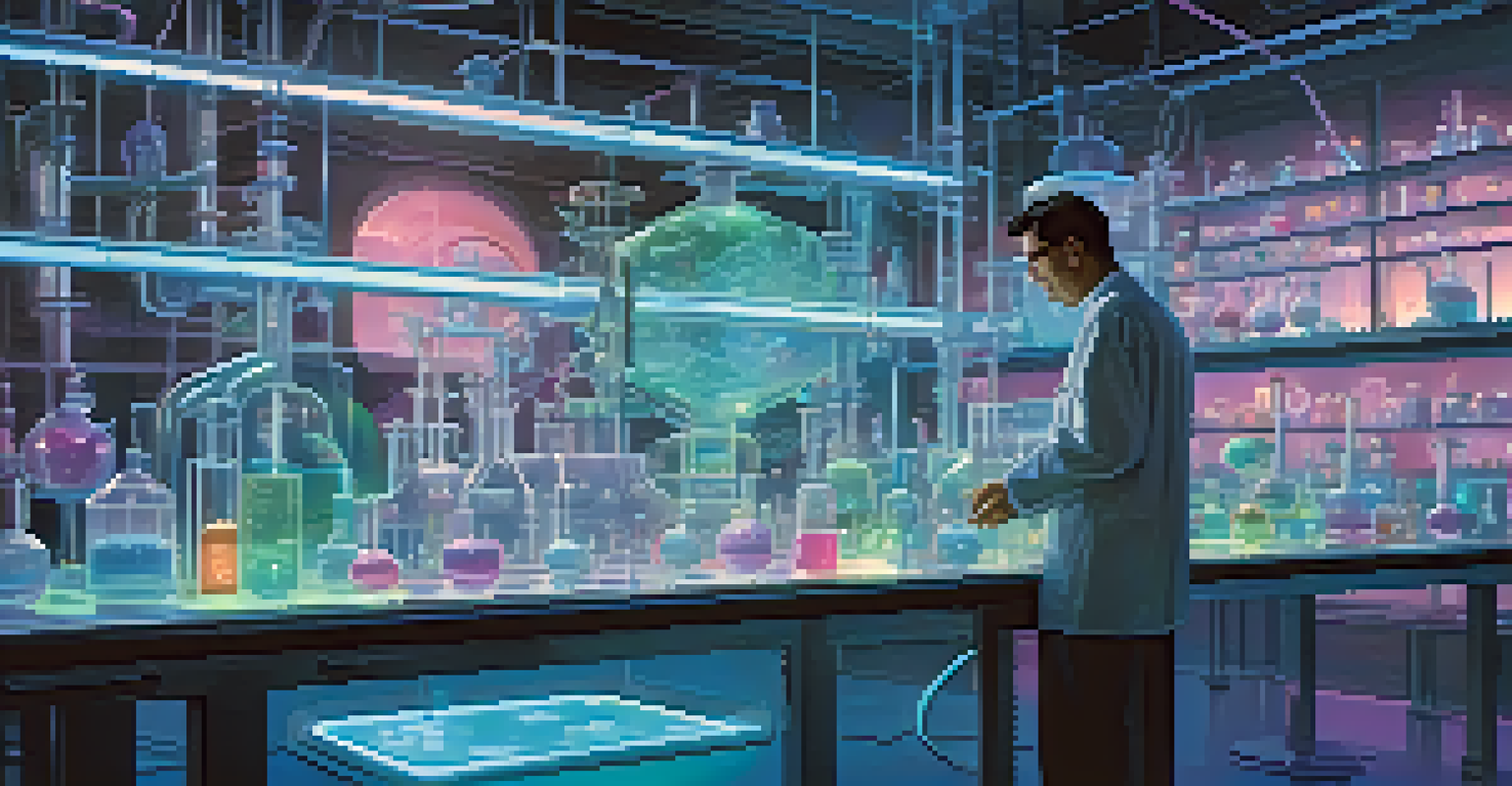Science Fiction: Imagination and Its Psychological Effects

The Role of Imagination in Science Fiction
Imagination is the lifeblood of science fiction, allowing creators to explore realms beyond our reality. This genre pushes the boundaries of what we deem possible, inviting readers to envision futuristic technologies and societies. Through imaginative storytelling, science fiction not only captivates but also provokes thought about our current world and its potential trajectories.
Science fiction is the most important literature that we have, because it’s the only literature that deals with the future.
For instance, consider how Isaac Asimov's works have sparked interest in robotics and artificial intelligence. His stories invite readers to ponder moral dilemmas associated with these advancements. By engaging with such narratives, we can cultivate a deeper understanding of the ethical implications of our scientific pursuits.
Ultimately, the interplay of imagination and science fiction encourages innovation. It inspires scientists and engineers to bring these fantastical visions to life, highlighting the genre's role in shaping our technological landscape.
Psychological Effects of Science Fiction on Readers
Reading science fiction can have profound psychological effects on its audience. Engaging with complex narratives and futuristic worlds often stimulates critical thinking and problem-solving skills. This genre challenges readers to navigate moral dilemmas and consider the consequences of technological advancements, fostering a sense of responsibility.

Moreover, science fiction frequently serves as a mirror, reflecting societal fears and hopes. For instance, dystopian narratives like '1984' or 'The Hunger Games' can evoke emotions that prompt readers to reflect on their own societies. By confronting these themes, readers can develop empathy and a greater awareness of societal issues.
Imagination Fuels Innovation
Science fiction sparks creativity and inspires real-world technological advancements by challenging our understanding of what's possible.
In essence, science fiction not only entertains but also shapes our psychological landscape by encouraging introspection and dialogue about our world and its future.
Science Fiction as a Tool for Cognitive Exploration
Science fiction acts as a cognitive playground, allowing readers to explore concepts that stretch the mind. By encountering ideas like time travel or alternate realities, readers can engage in mental exercises that enhance creativity and abstract thinking. This exploration of the 'what if' can be both exhilarating and enlightening.
Imagination is the highest kite one can fly.
Take, for example, the concept of parallel universes presented in stories like 'Sliding Doors.' Such narratives invite readers to ponder the impact of their choices and the nature of reality itself. This cognitive exploration can lead to deeper insights into personal decision-making and life paths.
Thus, science fiction serves as an invaluable resource for cognitive development, pushing readers to think outside the box and consider complex scenarios that challenge their understanding of the world.
The Influence of Science Fiction on Real-World Innovations
Throughout history, science fiction has inspired countless real-world innovations. Visionaries like Arthur C. Clarke foresaw technologies such as satellite communication long before they became a reality. This connection between fiction and invention underscores the power of imaginative thinking.
Furthermore, many scientists cite science fiction as a source of inspiration for their work. The concepts presented in these narratives often serve as a springboard for research and development, pushing boundaries in fields like robotics, space exploration, and biotechnology. For example, the idea of virtual reality has roots in science fiction, evolving from mere imagination to a burgeoning industry.
Science Fiction Mirrors Society
The genre reflects societal fears and hopes, prompting readers to engage in critical discussions about current issues.
In this way, science fiction not only entertains but also plays a pivotal role in shaping our technological future, demonstrating the tangible impact of imaginative storytelling.
The Societal Reflections Found in Science Fiction
Science fiction often serves as a cultural commentary, reflecting societal issues and anxieties. By setting narratives in futuristic or alternate worlds, authors can explore themes like inequality, environmental degradation, and authoritarianism in ways that resonate with readers. This reflective nature of the genre encourages a deeper understanding of our current societal dynamics.
For instance, works like 'Fahrenheit 451' tackle censorship and the dangers of a passive society, prompting readers to consider their roles in a democratic framework. These narratives can ignite conversations about pressing issues, making science fiction a vital tool for social critique.
Ultimately, science fiction not only entertains but also stimulates dialogue about our world, prompting readers to confront and reflect on the complexities of society.
Therapeutic Aspects of Science Fiction Engagement
Engaging with science fiction can have therapeutic benefits for readers. Immersing oneself in fantastical narratives allows for escapism, providing a mental break from everyday stresses. This form of escapism can be particularly beneficial in challenging times, offering a safe space to explore emotions and ideas.
Moreover, science fiction can foster a sense of community among fans. Sharing thoughts and theories about beloved narratives with others can create connections and support systems. This communal aspect can be incredibly rewarding, as it allows individuals to bond over shared interests and experiences.
Therapeutic Benefits of Sci-Fi
Engaging with science fiction provides escapism and fosters community, offering solace and connection in a chaotic world.
Thus, the therapeutic benefits of science fiction extend beyond mere entertainment, offering solace and connection in an often chaotic world.
The Future of Science Fiction and Its Impact on Society
As we venture further into the 21st century, the future of science fiction remains bright and increasingly relevant. With advancements in technology, the genre continues to evolve, exploring new themes and challenges that resonate with contemporary audiences. This adaptability ensures that science fiction will remain a vital platform for examining our world and its future.
Additionally, as societal issues like climate change and social justice gain prominence, science fiction has the opportunity to address these topics head-on. By weaving these themes into narratives, authors can inspire readers to engage with these pressing issues and consider their roles in creating change.

In conclusion, the future of science fiction promises to be a powerful force for imagination and reflection, continuing to impact society in profound ways.